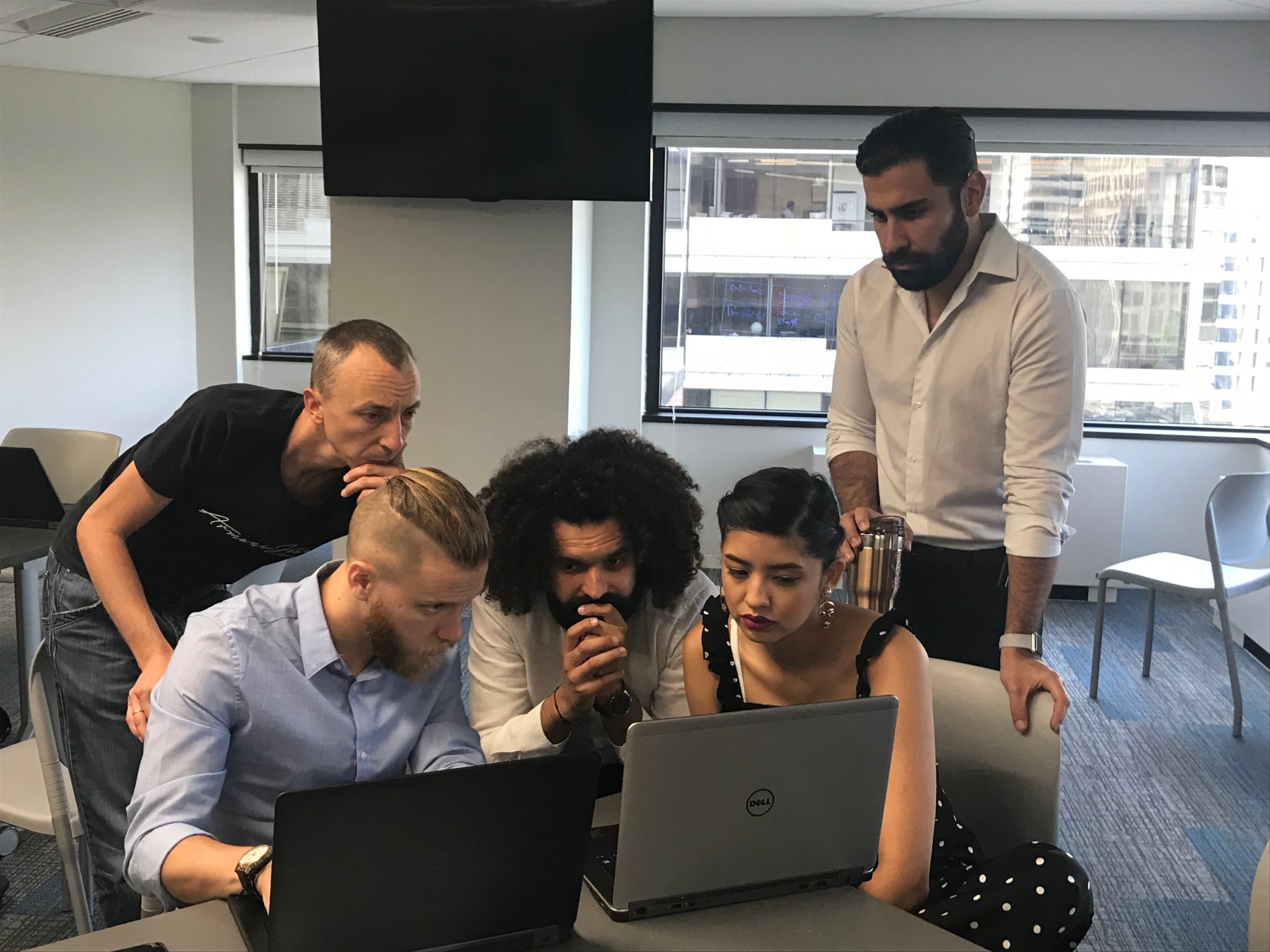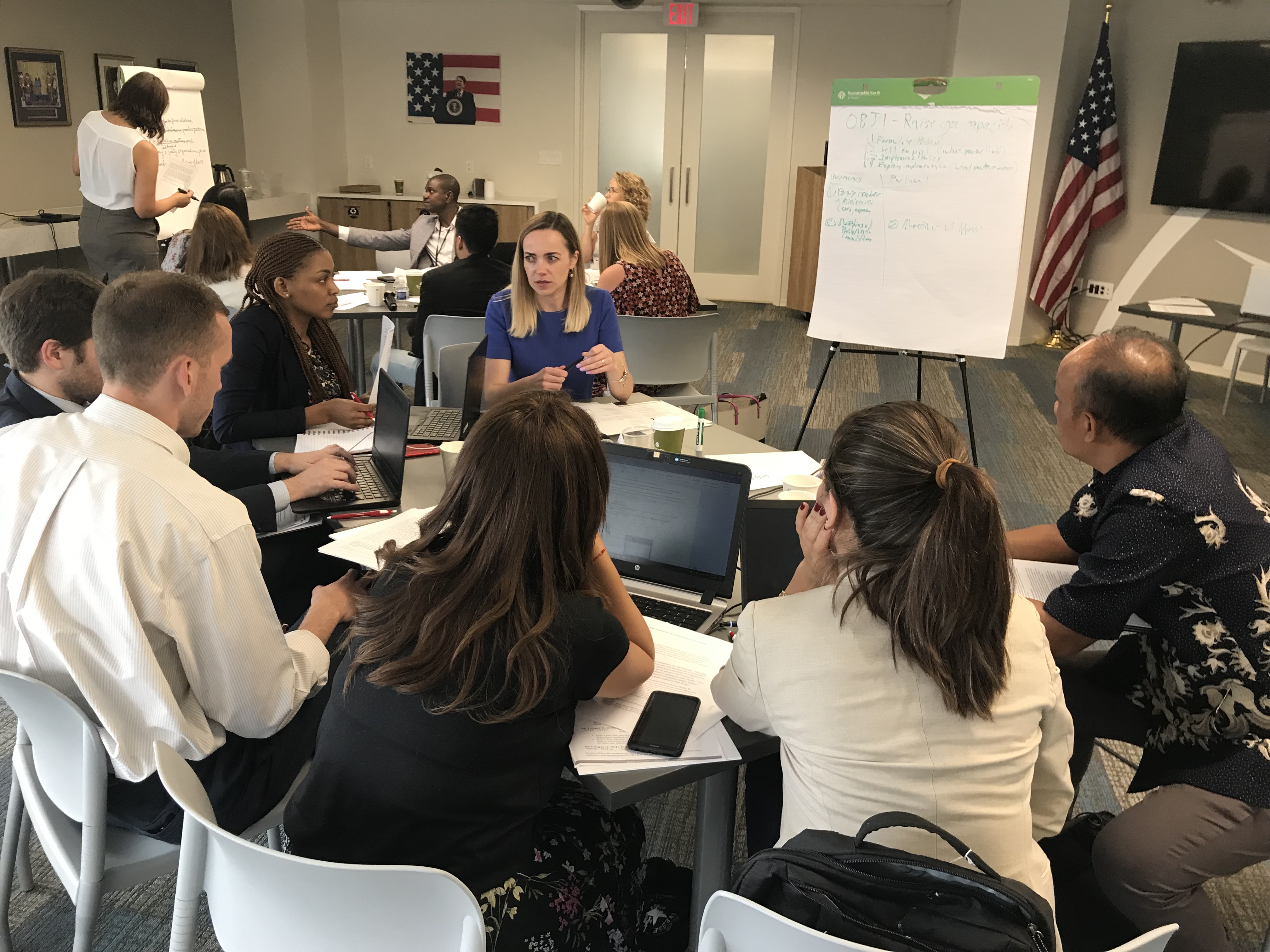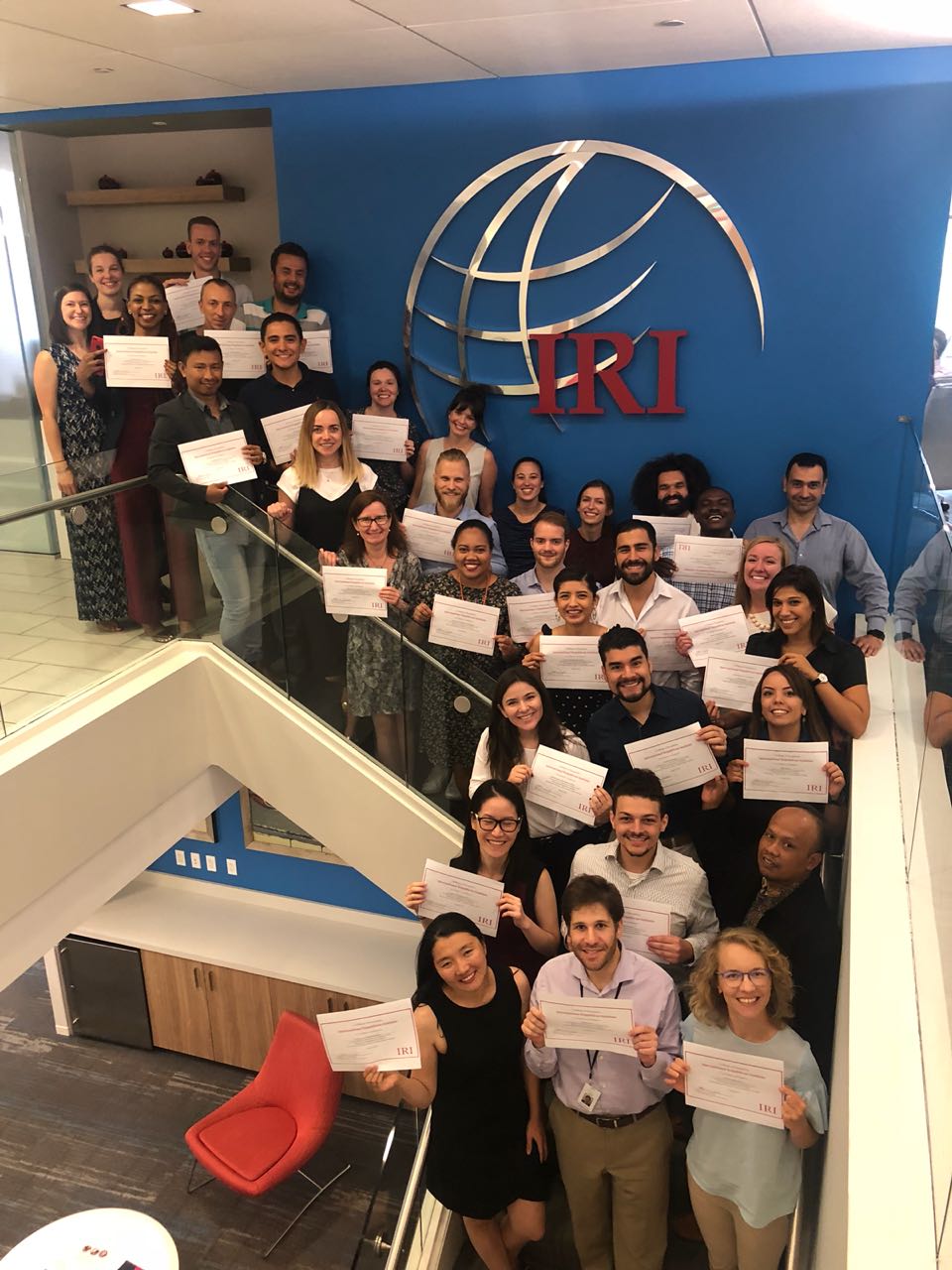Leveraging Field Expertise at IRI’s Monitoring, Evaluation and Learning Summer Institute: Peer Trainers Help Put Theory Into Practice

This August, IRI’s Office of Monitoring, Evaluation and Learning (OMEL) brought together 27 staff from 20 field offices and DC to the first MEL Summer Institute to learn about the foundations and new trends of monitoring, evaluation and learning (MEL). The intensive four-day training allowed our colleagues to learn and practice every MEL element of program design and implementation – from designing a program based on rigorous analysis of the context, setting up reliable systems of data collection and analysis, to planning for intentional learning and program adaption.
To help make the session as practical as possible, OMEL also invited MEL Specialists from IRI’s field offices, Sergio Bustamante (Guatemala), Natalya Yakymchuk (Ukraine) and Hela Bellakanji (Tunisia), to be peer trainers. They co-led several sessions, facilitated case studies and shared their wealth of practical MEL knowledge and experience. In a follow-up survey, participants rated case studies facilitated by peer trainers and peer trainer-led sessions on field-based MEL practices as some of the most useful sessions.
The case studies were particularly helpful in putting into practice what we learned.
Field based panel was especially useful, and more helpful than theory alone.

Because the peer trainers played such an integral role, I asked them to reflect on their experience at the Summer Institute, discuss the role of experience-sharing as a conduit of learning and share their thoughts on how we can better support our MEL colleagues in the field.
“What is the value of learning from each other’s experiences, especially among participants from different countries?”
Natalya: “The biggest value of learning from each other’s experiences are the personal stories! You can forget what you read in the book, but you will never forget the personal story, emotions, the personal charisma. I enjoyed working as a group on a case study – we were representatives not just from different countries but from different continents. It was an honor to hear what my colleagues are doing and how they are taking into account the economy, freedom of speech and expression and the role of women in society. Despite all the differences in language, culture, historical past – we all work and look in the same direction. I realized that all of us speak the same professional language, that one MEL approach exists and is used in all IRI offices around the world.”
Sergio: “I think that getting to know my peers and their experiences has helped me to understand that I´m not sailing by myself in the “MEL realm,” and that many of the related issues and challenges that I have encountered on the way also happen in other places. The true value, I think, is to get to know the experiences of others in the process of offering better programming, and also understanding how others deal and offer solutions to the challenges that appear during the project lifecycle from a different point of view. Many times we search for complex and elaborate tools and methodologies for monitoring, evaluation and learning, and by having the opportunity to interact and share with fellow IRIers really puts many opportunities into perspective.”
“Did teaching others enhance your own understanding of MEL concepts and practices, and if so, how?”
Sergio: “Teaching others refreshes your memory in terms of the things that you already knew but maybe put aside or perform mechanically day to day. Having people ask questions about those topics helped me think in a new way about all the MEL terms, concepts and methodologies. Specifically, I think that MEL systems in different IRI offices benefit from these exchanges because you get a chance to think about what works and what doesn’t, and it also allows us to learn what others are doing somewhere else, which might help us improve in many ways.”
Natalya: “100 percent yes! This was the first time for me to teach others as a co-trainer, and I loved it! And I can say that teaching and sharing is a new learning! When I was preparing the presentation on data collection, I clearly understood that a big question is how to provide information to the audience. The secret is to simplify complex things, to provide examples and to interact with the audience. I was going through the same things and concepts and looking for a better way how to present it, and that enhanced my own understanding of this topic and MEL concepts in general.
Also, I really loved the panel presentation on field-based MEL practices that I co-led with my colleagues from Tunisia and Guatemala. I learned a lot from the colleagues from other offices and I realized that we all speak the same professional language.
“How can IRI empower field staff to do better monitoring, evaluation and learning?”
Natalya: “Definitely, the first way is to continue to organize trainings like MEL Summer Institute – it is much more useful than self-evaluation. MEL Summer Institute is also a competition, and you want to become better. The solid amount of daily MEL work is monitoring. You have to be very organized and attentive to small details. When working on such details, it is necessary to remind yourself that this is an important part of a big process. Events and trainings are other opportunities that are needed to show the importance of such processes, to get motivated and inspire by others.”
Sergio: “I truly believe that context matters when it comes to monitoring, evaluation and learning. Sometimes cultural aspects such as language barriers may be a challenge for MEL practitioners. I think it is important to provide the right tools and know-how in a form of comprehensive and useful resources, such as manuals and video tutorials, and have some of us who have worked a little longer in this area provide support and guidance in the process of helping our colleagues to become ‘the MEL person’ in their field offices.”
As the feedback from the participants highlighted, peer to peer exchanges are a great investment in the MEL capacity of our field colleagues. We have enlisted the peer trainers once again to help Summer Institute participants implement what they learned in their field offices, and look forward to seeing our colleagues succeed in their MEL endeavors!

Top